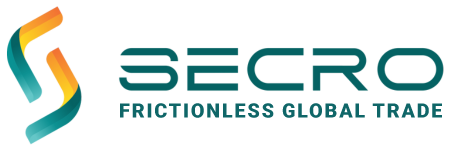The Network and Information Security Directive (NIS2 Directive) aims to bolster the cybersecurity resilience and incident response capacities of organizations within the European Union. It emphasizes the importance of managing and mitigating cybersecurity risks, particularly in the supply chain. This whitepaper explores how adopting electronic Bills of Lading (eBL) can enable companies to comply with the NIS2 Directive, enhance security, and save millions in potential fines.
Challenges of Paper-Based Bills of Lading
Paper bills of lading (BOLs) play a crucial role in the supply chain as receipts for shipped goods and contracts between shippers and carriers. However, their use poses significant challenges in the context of the NIS2 Directive:
- Security Risks:
- Loss and Theft: Paper BOLs are vulnerable to loss, theft, and tampering, increasing the risk of unauthorized access and fraud.
- Forgery: Paper documents can be easily forged, leading to potential disputes and fraud, compromising supply chain integrity.
- Efficiency and Speed:
- Manual Processing: Handling paper BOLs requires manual effort, leading to delays and increased chances of human error.
- Slow Transmission: Physical transportation of paper BOLs slows down information exchange, impacting decision-making and response times.
- Compliance and Auditability:
- Lack of Traceability: Tracking changes and access to paper BOLs is challenging, complicating compliance with NIS2’s monitoring and management requirements.
- Audit Challenges: Conducting audits on paper documents is labor-intensive and less reliable compared to digital systems.
- Integration with Digital Systems:
- Data Entry Errors: Transferring information from paper to digital systems requires manual entry, which is error-prone.
- Disjointed Systems: Paper-based processes are often not well integrated with digital supply chain management systems.
- Real-Time Monitoring and Incident Response:
- Delayed Response: Paper BOLs hinder real-time updates and tracking, delaying incident detection and response.
- Lack of Automation: Paper documents prevent the use of automated monitoring and alerting tools.
Advantages of Electronic Bills of Lading
- Enhanced Security:
- Encryption and Access Control: Digital BOLs can be encrypted and access-controlled, ensuring only authorized parties can view or modify them.
- Tamper-Evident Features: Digital documents can include tamper-evident features, making unauthorized changes easily detectable.
- Improved Efficiency:
- Faster Processing: Digital BOLs can be processed and transmitted instantly, speeding up supply chain operations.
- Automation: Reduces human error through automated data entry and processing.
- Better Compliance and Traceability:
- Audit Trails: Digital BOLs generate automatic audit trails, documenting every access and change, crucial for compliance.
- Real-Time Updates: Digital systems provide real-time updates and tracking, ensuring current information is always available.
- Seamless Integration:
- Interoperability: Digital BOLs integrate easily with other digital supply chain management and cybersecurity systems.
- Data Accuracy: Automated data capture and validation improve information accuracy.
- Proactive Monitoring and Response:
- Real-Time Monitoring: Digital documents enable real-time shipment monitoring, aiding quick threat detection and response.
- Automated Alerts: Systems can generate alerts for suspicious activities, facilitating prompt incident response.
Financial Consequences of Non-Compliance
Non-compliance with the NIS2 Directive, particularly due to the continued use of paper BOLs, can result in substantial financial fines. These fines can be calculated as a percentage of the company’s annual global turnover, up to 2%, or as fixed amounts specified by national implementing regulations. For instance:
- Small to Medium Enterprises (SMEs): For an SME with an annual turnover of €10 million, fines could amount to €200,000.
- Large Corporations: For a corporation with a €1 billion turnover, fines could reach €20 million.
These penalties are designed to be proportional to the size and impact of the non-compliance, ensuring that companies take cybersecurity and compliance seriously.
Conclusion
Adopting electronic Bills of Lading is essential for NIS2 Directive compliance. Digital BOLs enhance security, efficiency, traceability, and integration within the supply chain. By transitioning to eBLs, companies can avoid substantial fines, improve their cybersecurity posture, and maintain operational resilience. Embrace eBLs to secure your supply chain, ensure compliance, and protect your financial stability and reputation.

